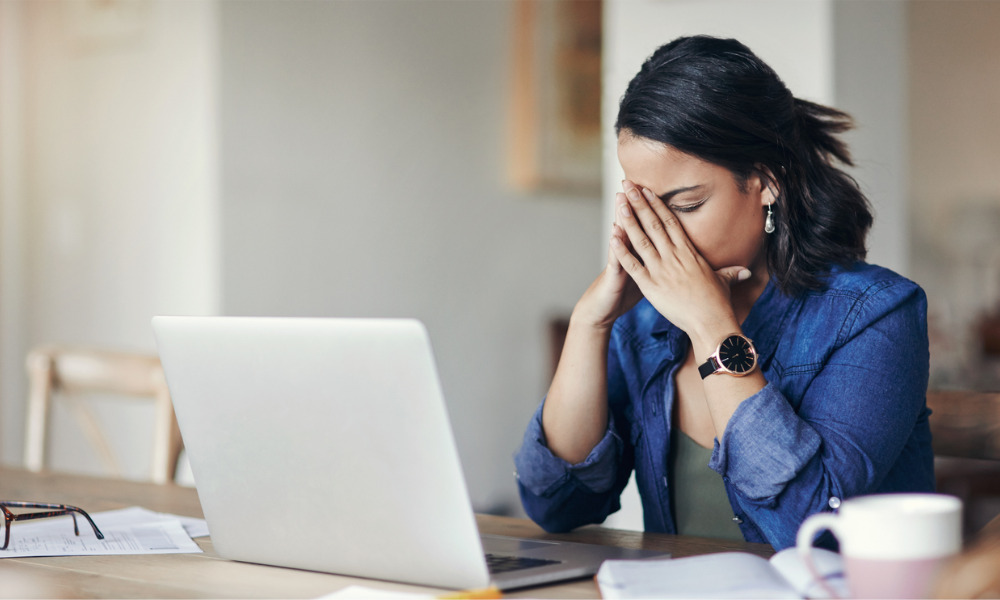
More than 70 per cent of participants report moderate, high or very high levels of burnout

A survey of in-house lawyers found 53 per cent of respondents felt they worked longer hours while working from home during the COVID-19 pandemic, compared with the time they had previously spent working at the office.
The Association of Corporate Counsel’s third online flash poll, which sought to provide a glimpse of the impact of the public health crisis on the personal wellness and work habits of its members and of in-house lawyers in general, also found that 30 per cent of respondents are experiencing high or very high levels of burnout, while 44 per cent reported moderate levels of burnout.
At least 40 per cent of participants have experienced nervous feelings, anxiety and troubles in concentrating. Almost half reported feeling tired or having trouble sleeping. In addition, 39.5 percent expressed alarm or concern over racial disparity during or caused by the pandemic.
Only 12.7 per cent denied going through any of the aforementioned problems, as well as the other options of restlessness, poor appetite or overeating, increased consumption of substances and depression.
With about 88 per cent of respondents working remotely, there was an almost equal divide between those who found it easy to make the switch from work mode to rest mode and those who found this shift more difficult.
The participants’ general outlook appeared to be optimistic despite these challenges, with 84.2 per cent claiming a positive attitude toward work and with 83.3 per cent perceiving their own overall emotional state to be good.
“As businesses around the world struggled to adjust to the new challenges of COVID-19, corporate legal departments were at the forefront of those transitions,” said Tori Payne, ACC’s vice-president and chief membership officer. Payne added that members frequently voiced their thoughts on how these work responsibilities have caused stress or have affected their mental health.
The survey also asked the ACC members how they were keeping in touch with their friends or relatives. About 95 per cent said they often or sometimes texted their loved ones over the two weeks preceding the survey, while phone calls and video calls via Skype, FaceTime, Zoom and other applications were the second and third most popular answers. Meeting personally, whether at a person’s home or outside, was much less common.
Almost 80 per cent said they had attended virtual wellness activities, with the most frequently chosen options being cocktail parties and fitness classes. Other virtual events included worship services, meditation or mindfulness sessions, meals, cooking classes, book clubs, yoga and trivia nights.
The ACC received 460 responses from its members in the poll, which ran from June 3 to June 8.